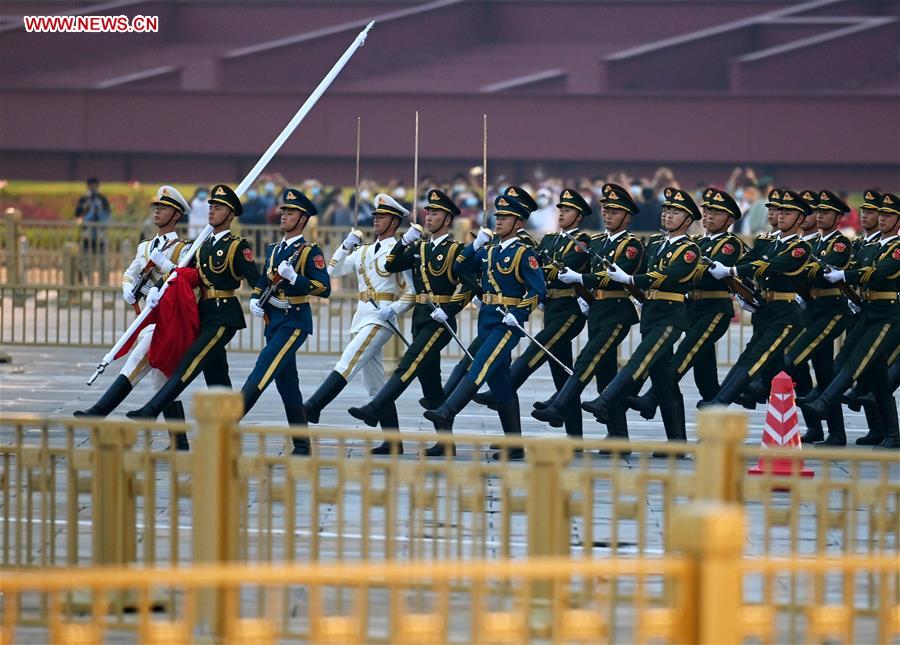Top political advisory body convenes meeting
Writer: Xinhua | Editor: Holly Wang | From: Shenzhen Daily | Updated: 2020-05-21

A national flag-raising ceremony is held at the Tian'anmen Square in Beijing today. The National Committee of the Chinese People's Political Consultative Conference, the country's top political advisory body, will open its annual session this afternoon in Beijing. Xinhua
The National Committee of the Chinese People’s Political Consultative Conference (CPPCC), the country’s top political advisory body, will open its annual session at the Great Hall of the People in Beijing this afternoon, a spokesperson said yesterday.
The session is set to conclude May 27, four and half days shorter than previously planned, Guo Weimin, spokesperson for the session, told a press conference.
During the session, the number of plenary meetings and group meetings will be reduced.
There will be three gatherings at the Great Hall of the People — the opening, the closing, and a plenary meeting at which some national political advisers will deliver speeches. Another similar event will be held through video links.
Foreign diplomatic envoys to China will be invited to observe the opening and closing meetings, he added.
A number of Beijing-based Chinese and foreign reporters have been invited to cover the event, he said.
Three interview meetings for members of the CPPCC National Committee will be conducted through video channels and be livestreamed.
The advisers have highlighted the urgency of improving the public health emergency management and the country’s overall governance system in the wake of the COVID-19 pandemic, Guo said.
China has made major achievements in fighting the epidemic, but coping with the new virus also has exposed some deficiency in the country’s public health emergency management, he said.
Many CPPCC members made proposals on making up for shortfalls in public health emergency management, Guo said. Proposals include speeding up legislation in public health, establishing a mechanism integrating modern and traditional Chinese medicine on the prevention and control of major epidemics, and improving the development of hospitals specializing in infectious diseases, he said.
During the session, the advisers will review and discuss work reports of the Central Government, the top judicial and procuratorate organs, the draft civil code and related resolutions.